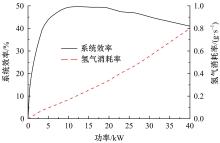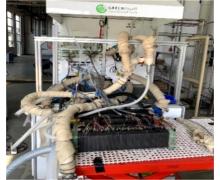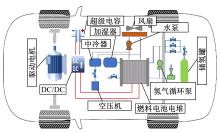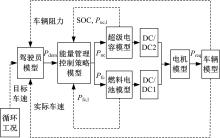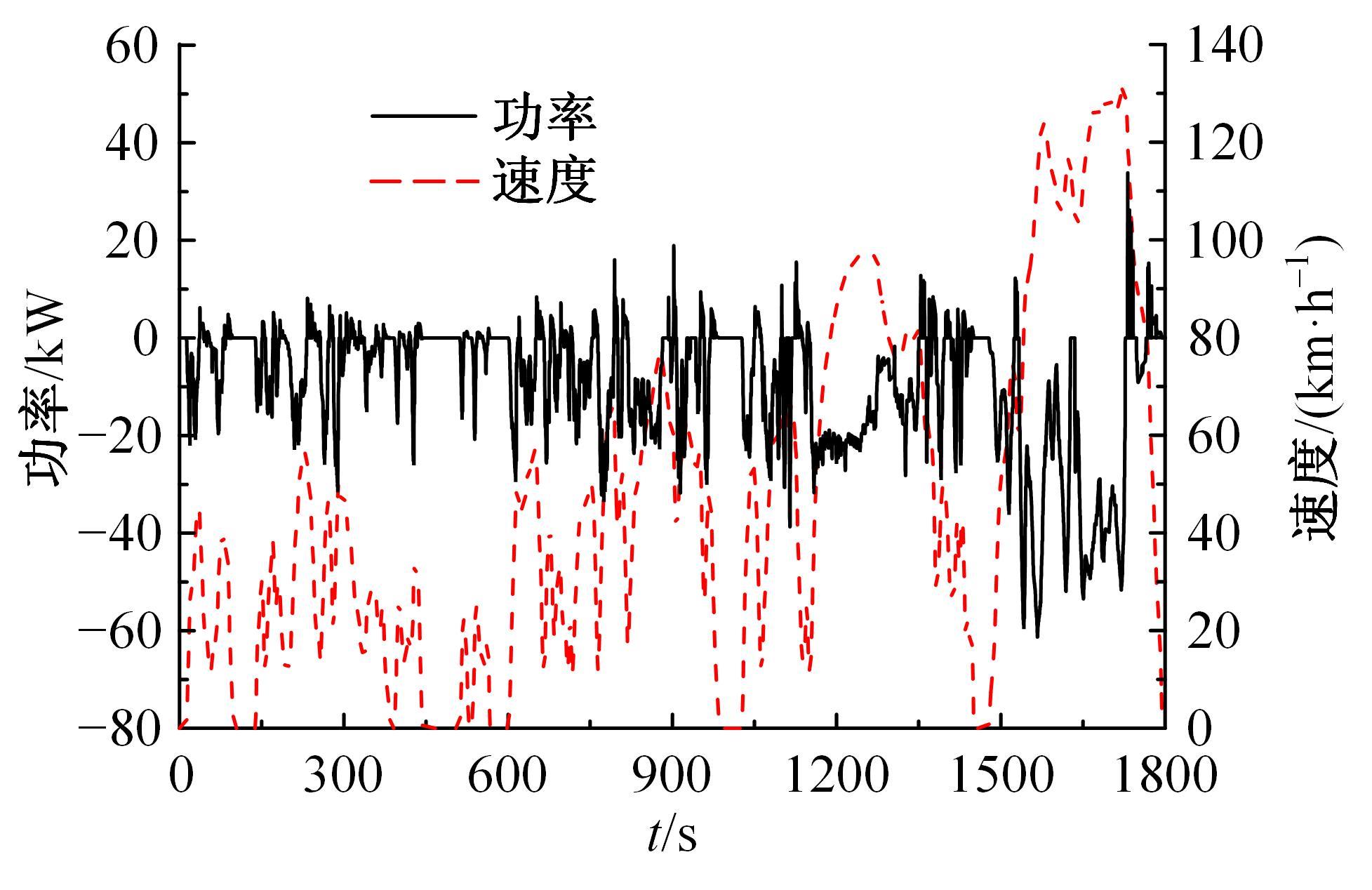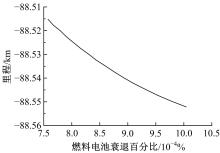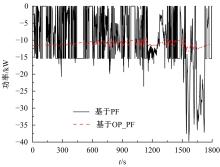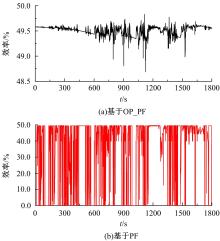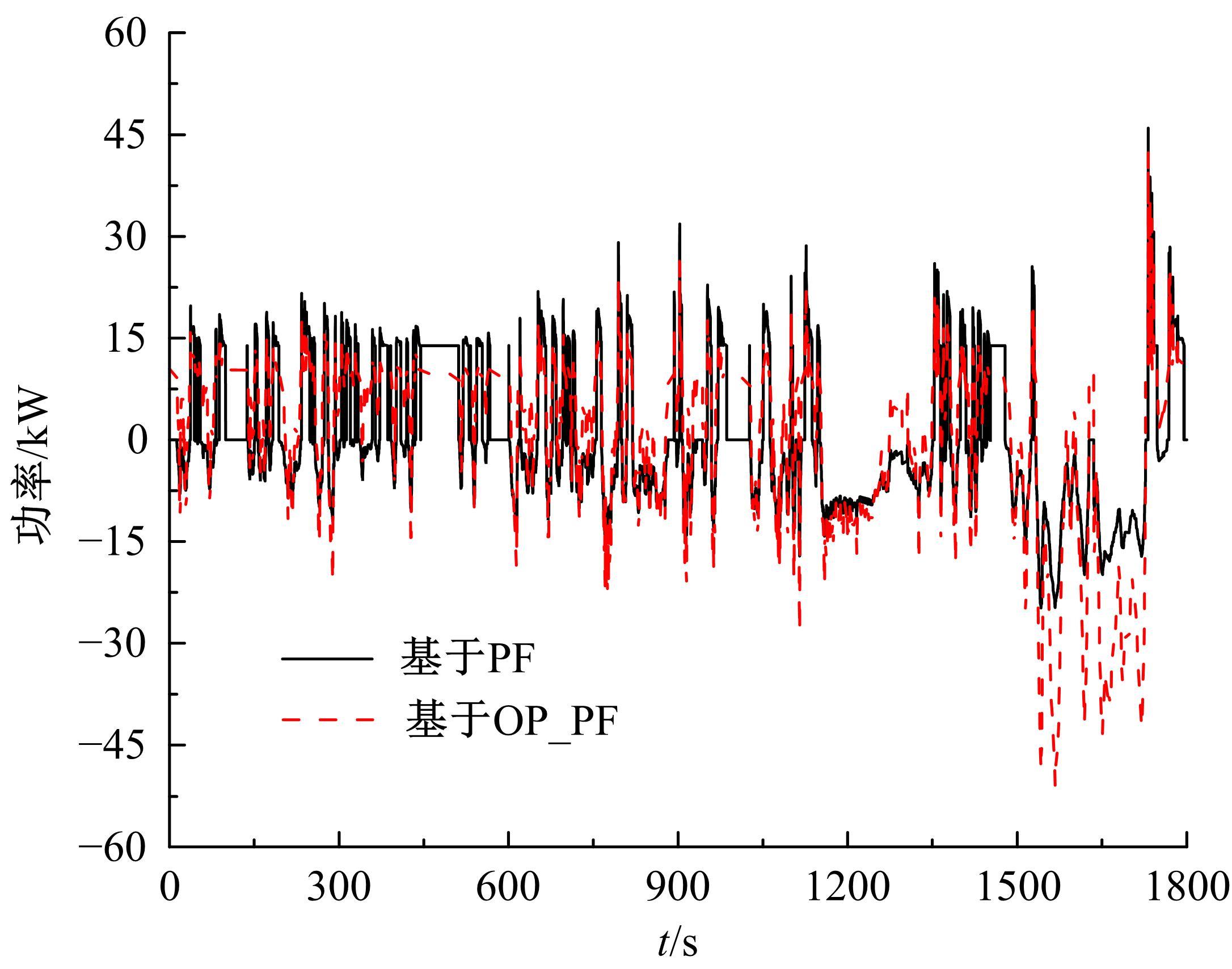Journal of Jilin University(Engineering and Technology Edition) ›› 2022, Vol. 52 ›› Issue (9): 2130-2138.doi: 10.13229/j.cnki.jdxbgxb20210773
Energy management strategy of fuel cell electric vehicles
Yan SUN1( ),Chang-gao XIA1(
),Chang-gao XIA1( ),Bi-feng YIN1,Jiang-yi HAN1,Hai-yu GAO2,Jing LIU1,3
),Bi-feng YIN1,Jiang-yi HAN1,Hai-yu GAO2,Jing LIU1,3
- 1.School of Automotive and Traffic Engineering,Jiangsu University,Zhenjiang 212013,China
2.Fuel Cell Vehicle Technology Research Center,D. R. Power Technology Co. ,Ltd. ,Jiaxing 314001,China
3.School of Automotive Engineering,Nanjing Vocational Institute of Transport Technology,Nanjing 211188,China
CLC Number:
- U469.72
| 1 | 张炎治,冯颖,张磊.中国碳排放增长的多层递进动因-基于SDA和SPD的实证研究[J]. 资源科学, 2021, 43(6): 1153-1165. |
| Zhang Yan-zhi, Feng Ying, Zhang Lei. Analysis on the progressive motivation of carbon emissions growth in China using structural decomposition analysis and structural path decomposition methods[J]. Resources Science, 2021, 43(6): 1153-1165. | |
| 2 | Zhou Meng-ge, Hu Ting-ting. Analysis of carbon emission status under the carbon neutral target in China for earth's atmospheric balance[J]. IOP Conference Series: Earth and Environmental Science, 2021, 804(4): No.042082. |
| 3 | Kang Jia-ning, Wei Yi-ming, Liu Lan-cui, et al. Observing technology reserves of carbon capture and storage via patent data: paving the way for carbon neutral[J]. Technological Forecasting & Social Change, 2021, 171(6): No.120933. |
| 4 | 王哲,谢怡,臧鹏飞,等. 基于极小值原理的燃料电池客车能量管理策略[J]. 吉林大学学报: 工学版, 2020, 50(1): 36-43. |
| Wang Zhe, Xie Yi, Zang Peng-fei, et al. Energy management strategy for fuel cell buses based on the principle of minimum value[J]. Journal of Jilin University (Engineering and Technology Edition), 2020, 50(1): 36-43. | |
| 5 | 骆永伟,朱亮,王向飞,等. 电解水制氢催化剂的研究与发展[J]. 金属功能材料, 2021, 28(3): 58-66. |
| Luo Yong-wei, Zhu Liang, Wang Xiang-fei, et al. Research and development of electrolytic water hydrogen production catalyst[J]. Metallic Functional Materials, 2021, 28(3): 58-66. | |
| 6 | 马梓璇,张昱曈,颜胜,等. 一种基于太阳能的氢燃料电池汽车自产氢供应系统[J]. 应用能源技术, 2021, 37(6): 47-49. |
| Ma Zi-xuan, Zhang Yu-tong, Yan Sheng, et al. A self-produced hydrogen supply system for hydrogen fuel cell vehicles based on solar energy[J]. Applied Energy Technology, 2021, 37(6): 47-49. | |
| 7 | 白玫. “十四五”时期新能源汽车产业竞争力提升的方向与路径[J]. 价格理论与实践, 2021, 40(2): 18-24. |
| Bai Mei. The direction and path of improving the competitiveness of energy automobiles industry during the "14th Five Year Plan" period[J]. Price: Theory & Practice, 2021, 40(2): 18-24. | |
| 8 | 金希计. 新能源汽车的技术原理和优缺点探究[J]. 时代汽车, 2020, 16(15): 80-81. |
| Jin Xi-ji. Research on the technical principles, advantages and disadvantages of new energy vehicle[J]. Auto Time, 2020, 16(15): 80-81. | |
| 9 | Kim Y B, Kim E J, Yoon J, et al. Design and performance evaluation of integral-type hot BoP for recovering high-temperature exhaust gas in 2 kW class SOFC[J]. Applied Chemistry for Engineering, 2019, 30(1): 62-67. |
| 10 | 皇甫宜耿,任子俊,张羽翔,等. 质子交换膜燃料电池动态特性建模及仿真[J]. 电力电子技术, 2020, 54(12): 44-46. |
| Huangfu Yi-geng, Ren Zi-jun, Zhang Yu-xiang, et al. Dynamic characteristics molding and simulation of proton exchange membrane fuel cell[J]. Power Electronics, 2020, 54(12): 44-46. | |
| 11 | 刘楠,李明高,郭爱,等. 基于价值损耗的燃料电池混合动力能量管理策略评价[J]. 太阳能学报, 2021, 42(2): 281-288. |
| Liu Nan, Li Ming-gao, Guo Ai, et al. Evaluation of energy management strategy based on value loss of fuel cell hybrid system[J]. Acta Energiae Solaris Sinica, 2021, 42(2): 281-288. | |
| 12 | Ma S, Lin M, Lin T E, et al. Fuel cell-battery hybrid systems for mobility and off-grid applications: a review[J]. Renewable and Sustainable Energy Reviews, 2021, 135: No. 110119. |
| 13 | Yuan J N, Yang L, Chen Q. Intelligent energy management strategy based on hierarchical approximate global optimization for plug-in fuel cell hybrid electric vehicles[J]. International Journal of Hydrogen Energy, 2018, 43(16): 8063-8078. |
| 14 | Soumeur M A, Gasbaoui B, Abdelkhalek O, et al. Comparative study of energy management strategies for hybrid proton exchange membrane fuel cell four wheel drive electric vehicle[J]. Journal of Power Sources, 2020, 462: No. 228167. |
| 15 | 王骞,李顶根,苗华春. 基于模糊逻辑控制的燃料电池汽车能量管理控制策略研究[J]. 汽车工程, 2019, 41(12): 1347-1355. |
| Wang Qian, Li Ding-gen, Miao Hua-chun. Research on energy management strategy of fuel cell vehicle based on fuzzy logic control[J]. Automotive Engineering, 2019, 41(12): 1347-1355. | |
| 16 | Geng C, Jin X F, Zhang X. Simulation research on a novel control strategy for fuel cell extended-range vehicles[J]. International Journal of Hydrogen Energy, 2019, 44(1): 408-420. |
| 17 | Zhou Y, Ravey A, Péra M C. Multi-objective energy management for fuel cell electric vehicles using online-learning enhanced Markov speed predictor[J]. Energy Conversion and Management, 2020, 213: No. 112821. |
| 18 | Wu J L, Zhang N, Tan D K, et al. A robust online energy management strategy for fuel cell/battery hybrid electric vehicles[J]. International Journal of Hydrogen Energy, 2020, 45(27): 14093-14107. |
| 19 | 刘琦,詹跃东,李瑞棋. 燃料电池汽车能量管理策略多目标优化研究[J]. 电子测量技术, 2020, 43(20): 31-36. |
| Liu Qi, Zhan Yue-dong, Li Rui-qi. Research on a multi-objective optimization energy management strategy for fuel cell electric vehicles[J]. Electronic Measurement Technology, 2020, 43(20): 31-36. | |
| 20 | Chen H, Chen J, Lu H X, et al. A modified MPC-based optimal strategy of power management for fuel cell hybrid vehicles[J]. IEEE/ASME Transactions on Mechatronics, 2020, 25(4): 2009-2018. |
| 21 | Muñoz P M, Correa G, Gaudiano M E, et al. Energy management control design for fuel cell hybrid electric vehicles using neural networks[J]. International Journal of Hydrogen Energy, 2017, 42(48): 28932-28944. |
| 22 | İnci M, Büyük M, Demir M H, et al. A review and research on fuel cell electric vehicles: Topologies, power electronic converters, energy management methods, technical challenges, marketing and future aspects[J]. Renewable and Sustainable Energy Reviews, 2021, 137: No.110648. |
| 23 | Pei P C, Chang Q F, Tang T. A quick evaluating method for automotive fuel cell lifetime[J]. International Journal of Hydrogen Energy, 2008, 33(14): 3829-3836. |
| 24 | Song K, Chen H, Wen P M, et al. A comprehensive evaluation framework to evaluate energy management strategies of fuel cell electric vehicles[J]. Electrochimica Acta, 2018, 292: 960-973. |
| 25 | Chen G H, Niu W, Gu W, et al. Game-based energy management method for hybrid RTG cranes[J]. Energies, 2019, 12(18): No.3589. |
| [1] | Ji-zong LIU,Xiao-ping WU,Wei-hua KONG. Parameter configuration of fuel cell hybrid system for tram based on fish swarm optimization algorithm [J]. Journal of Jilin University(Engineering and Technology Edition), 2022, 52(9): 2004-2013. |
| [2] | Hai-lin KUI,Ze-zhao WANG,Jia-zhen ZHANG,Yang LIU. Transmission ratio and energy management strategy of fuel cell vehicle based on AVL⁃Cruise [J]. Journal of Jilin University(Engineering and Technology Edition), 2022, 52(9): 2119-2129. |
| [3] | Chong ZHANG,Yun-feng HU,Xun GONG,Yao SUN. Design of model⁃free adaptive sliding mode controller for cathode flow of fuel cell [J]. Journal of Jilin University(Engineering and Technology Edition), 2022, 52(9): 2085-2095. |
| [4] | Jing DU,Hong-hui ZHAO,Yu-peng WANG,Tian-wei DING,Kai WEI,Kai WANG,Ling-hai HAN. Purge strategy optimization and verification of PEM fuel cell engine based on AMESim simulation model [J]. Journal of Jilin University(Engineering and Technology Edition), 2022, 52(9): 2069-2076. |
| [5] | Yun-feng HU,Tong YU,Hui-ce YANG,Yao SUN. Optimal control method of fuel cell start⁃up in low temperature environment [J]. Journal of Jilin University(Engineering and Technology Edition), 2022, 52(9): 2034-2043. |
| [6] | Zi-rong YANG,Yan LI,Xue-feng JI,Fang LIU,Dong HAO. Sensitivity analysis of operating parameters for proton exchange membrane fuel cells [J]. Journal of Jilin University(Engineering and Technology Edition), 2022, 52(9): 1971-1981. |
| [7] | Pei ZHANG,Zhi-wei WANG,Chang-qing DU,Fu-wu YAN,Chi-hua LU. Oxygen excess ratio control method of proton exchange membrane fuel cell air system for vehicle [J]. Journal of Jilin University(Engineering and Technology Edition), 2022, 52(9): 1996-2003. |
| [8] | Zhen-ning LIU,Ke JIANG,Tao-tao ZHAO,Wen-xuan FAN,Guo-long LU. Development and experimental of high⁃power proton exchange membrane fuel cell test system [J]. Journal of Jilin University(Engineering and Technology Edition), 2022, 52(9): 2025-2033. |
| [9] | Feng-xiang CHEN,Jun-yu ZHANG,Feng-lai PEI,Ming-tao HOU,Qi-peng LI,Pei-qing LI,Yang-yang WANG,Wei-dong ZHANG. Modeling and selection scheme of proton exchange membrane fuel cell hydrogen supply system [J]. Journal of Jilin University(Engineering and Technology Edition), 2022, 52(9): 1982-1995. |
| [10] | Heng ZHANG,Zhi-gang ZHAN,Ben CHEN,Pang-chieh SUI,Mu PAN. Anisotropic transport properties of gas diffusion layer based on pore⁃scale model [J]. Journal of Jilin University(Engineering and Technology Edition), 2022, 52(9): 2055-2062. |
| [11] | Yao-wang PEI,Feng-xiang CHEN,Zhe HU,Shuang ZHAI,Feng-lai PEI,Wei-dong ZHANG,Jie-ran JIAO. Temperature control of proton exchange membrane fuel cell thermal management system based on adaptive LQR control [J]. Journal of Jilin University(Engineering and Technology Edition), 2022, 52(9): 2014-2024. |
| [12] | Xun-cheng CHI,Zhong-jun HOU,Wei WEI,Zeng-gang XIA,Lin-lin ZHUANG,Rong GUO. Review of model⁃based anode gas concentration estimation techniques of proton exchange membrane fuel cell system [J]. Journal of Jilin University(Engineering and Technology Edition), 2022, 52(9): 1957-1970. |
| [13] | Xiao-hua WU,Zhong-wei YU,Zhang-ling ZHU,Xin-mei GAO. Fuzzy energy management strategy of fuel cell buses [J]. Journal of Jilin University(Engineering and Technology Edition), 2022, 52(9): 2077-2084. |
| [14] | Feng-xiang CHEN,Qi WU,Yuan-song LI,Tian-de MO,Yu LI,Li-ping HUANG,Jian-hong SU,Wei-dong ZHANG. Matching,simulation and optimization for 2.5 ton fuel cell/battery hybrid forklift [J]. Journal of Jilin University(Engineering and Technology Edition), 2022, 52(9): 2044-2054. |
| [15] | Han-wu LIU,Yu-long LEI,Xiao-feng YIN,Yao FU,Xing-zhong LI. Multi⁃point control strategy optimization for auxiliary power unit of range⁃extended electric vehicle [J]. Journal of Jilin University(Engineering and Technology Edition), 2022, 52(8): 1741-1750. |
|
||
